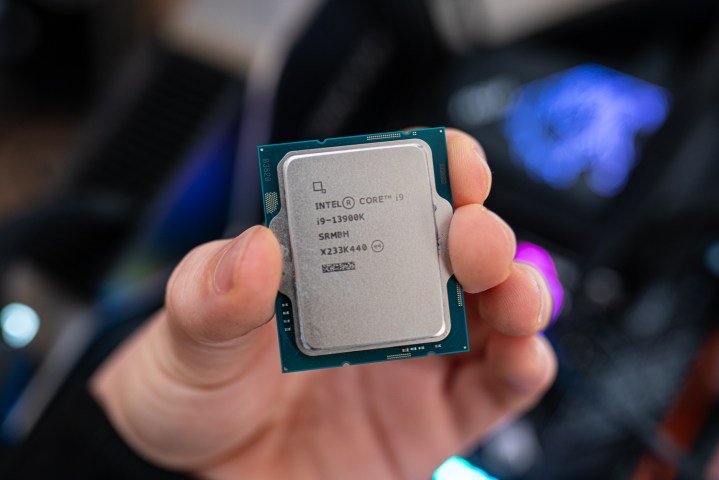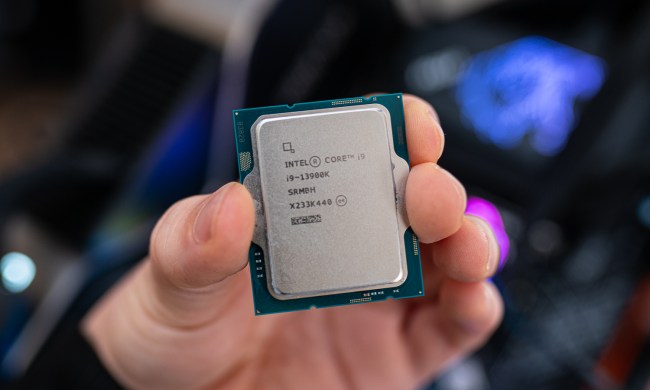
Some of Intel’s best CPUs may be having stability issues in Unreal Engine 4 and 5 games. According to reports from frustrated users, CPUs like the Core i9-13900K or the Core i9-14900K run into shader compilation issues in certain games, resulting in crashes. The community found a fix that seems to work for most people, but it’s more of a workaround than a real solution.
Reports about these problems have been flooding various Steam forums and Reddit communities for months afterSebastian Castellanos on X (formerly Twitter) brought them to light. It appears that people are experiencing these problems primarily in UE4/5 games. During the initial shader compilation stage, the game crashes to desktop. Affected titles include Hogwarts Legacy, Fortnite, Remnant 2, Nightingale, and more.
Seeing a worrying trend with some Intel 13th/14th gen CPUs having stability issues with UE4/UE5 games (like Fortnite, Remnant 2, Hogwarts Legacy etc.) specifically during the initial shader comp process, which apparently exposes "bad CPUs" and requires an underclock to stabilize: pic.twitter.com/0Qse0azI1r
— Sebastian Castellanos (@Sebasti66855537) February 20, 2024
Digging deeper into this issue involves a lot of speculation as to what the cause might be. However, there’s one fix that appears to work for most people who face this problem: underclocking. Dropping the P-core multiplier down a few points seems to do the trick. It’s no news that overclocking can cause stability issues, which is why this solution makes sense — but some people claim that their CPUs were running at stock speeds when this happened.
A huge thread on Steam’s Nightingale discussion boards compiles similar complaints from many Intel CPU owners, with the original poster stating: “Your CPU is faulty and has core errors. It’s not your GPU, it’s your CPU.” On the other hand, some users speculate that the problem might lie in hyperthreading in combination with UE5, and that it only affects the initial shader compilation, meaning that just getting past that first hurdle should be enough for the game to run properly going forward. Again, several reports counter this, with people reporting crashing in DirectX12 games in general, not specifically UE5.
I built a new gaming PC for myself back when the 4090 launched. I upgraded from a 12900K to a 13900K & everything ran well besides the high temperatures that were within the TjMax limit but hit 95C using a high end AIO cooler.
A few months later. I started having the same issues https://t.co/ASMgCRrFu8
— Hassan Mujtaba (@hms1193) February 21, 2024
Perhaps the most reliable source of information on this is RAD Game Tools, the company behind Oodle. Oodle is a suite of data-compression technologies used in games to optimize loading times and performance, including enhanced shader compiler efficiency. The company posted a comprehensive update on the problem, including useful troubleshooting tips and possible fixes for various motherboards to help users disable overclocking.
“As far as we can tell, there is not any software bug in Oodle or Unreal that is causing this. Due to what seem to be overly optimistic BIOS settings, some small percentage of processors go out of their functional range of clock rate and power draw under high load, and execute instructions incorrectly,” said RAD Game Tools. “This problem does not only affect Oodle, and machines that suffer from this instability will also exhibit failures in standard benchmark and stress test programs. Any programs which heavily use the processor on many threads may cause crashes or unpredictable behavior.”
If you’re experiencing problems in AAA games on one of Intel’s latest CPUs, your best bet is to underclock the chip and try again. While this is more of a workaround than a fix, it seems to be the only reliable solution. Unfortunately, at this point, it’s hard to say whether Intel is the company to turn to for all the fixes, as there are several culprits to consider, from software-based problems to hardware issues with the chips, or even motherboard manufacturers overclocking CPUs from the get-go.


